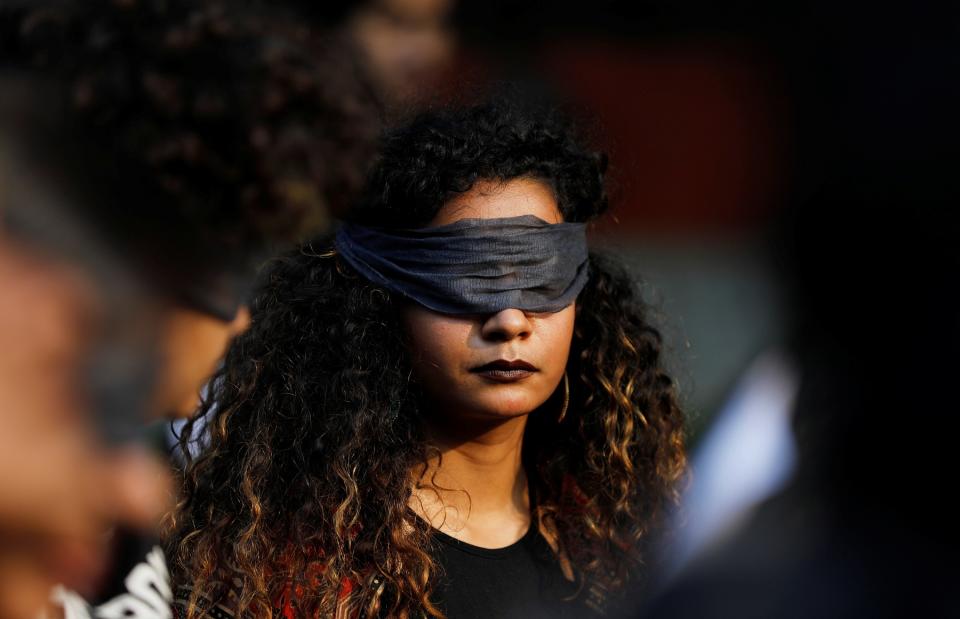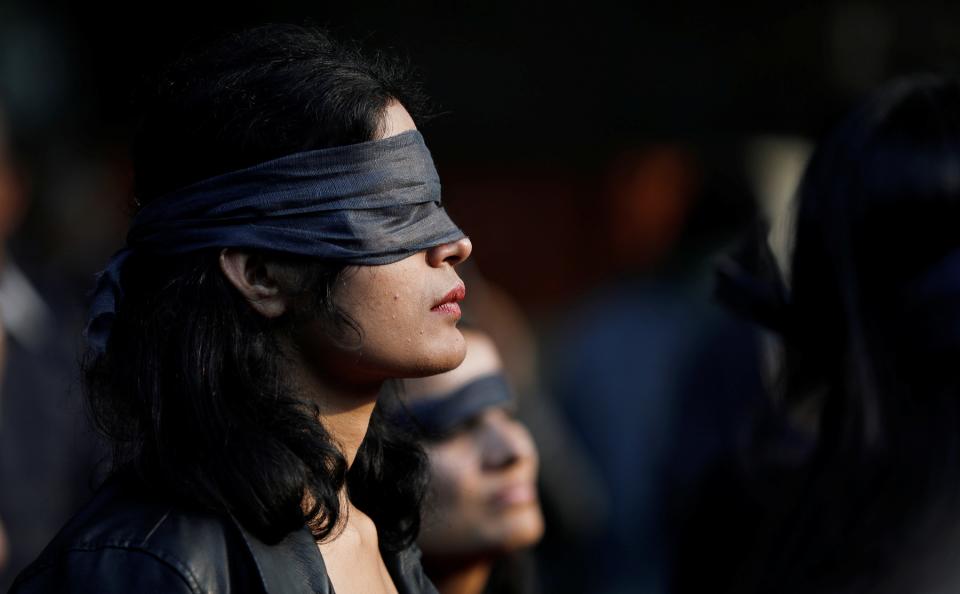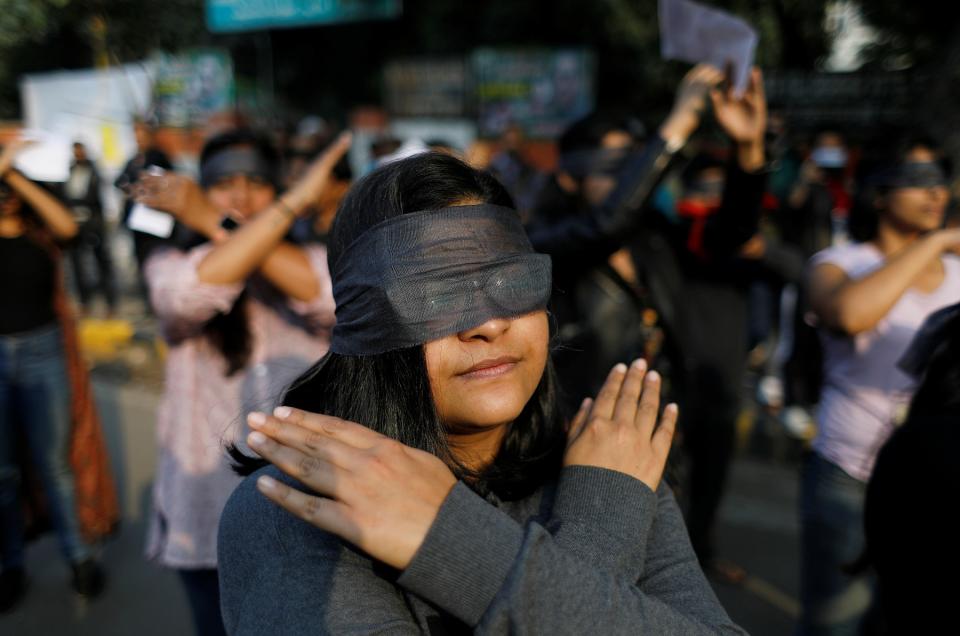Women Journalists Condemn Gag Order on Reportage of Sexual Assault Cases
The Network of Women in Media, India (NWMI), and 25 other individuals have written an open letter, sharing their deep concerns regarding the grave trend of “powerful men seeking gag orders on the media,” especially with regard to sexual and harassment cases.
The open letter that is up on NWMI’s website comes in the wake of Malayalam actor Dileep obtaining a gag order from a Kerala court that prevents the media from covering a case of alleged sexual assault against him by another actor. He is currently being tried in court as the ‘prime conspirator’ and the proceedings are underway.
Last month, Dileep had petitioned in the Ernakulam court for action against 10 media houses, who had allegedly violated the gag order.

“This pattern of seeking gag orders against reportage in such cases by the accused has now become a trend,” says the letter.
Also Read: Hathras Horror: Political Forces, Police Derailing the Case
The signatories have given detailed instances of situations, where gagging has happened in the past. They have also testified that Dileep has been allegedly trying to influence witnesses, which is why the prosecution has sought the cancellation of his bail. In fact, several witnesses who were to testify against him, turned hostile at the last moment.
As per a media report, “the accused has served legal notices on several Malayalam film personalities who wrote social media posts about witnesses in the case changing their testimonies,” they said.
This is not the first time that gag orders have been issued regarding the coverage of such cases. Earlier in March 2019, when allegations of sexual harassment surfaced against BJP politician, Tejasvi Surya, he obtained a temporary injuction from a Bengauru Sessions Court that prevented 49 media outlets from publishing anything that is ‘defamatory’ or ‘derogatory’ against him. The injunction was set aside in April 2019.

In July 2020, the Delhi High Court revoked the 2017 gag order that had banned media outlets from publishing articles and comments on sexual harassment allegations against serial investor Mahesh Murthy.
Even in 2014, the Delhi High Court had given out a gag order on publication and telecasting information, when a law intern levied charges of sexual harassment against a former Supreme Court judge.
Here’s what the signatories said in the open letter, “We stand in solidarity with survivors of sexual harassment and assault. While prioritising the privacy and dignity of survivors above all else, we believe that responsible reporting of broad facts in rape trials is in the interests of justice.”
“In the context of rape in particular, a trend where the accused seeks to prevent media from covering trials presents a unique challenge for media reportage,” read the statement.
Media reports suggest that Dileep, in his petition, has argued that “the continued illegal act of publishing matters in relation to the in-camera proceedings in this case” are calculated to tarnish his public image.

On the contrary, Section 327(2) of the CrPC directs that rape inquiries and trials should be conducted in-camera, while Section 327(3) mandates that it is unlawful to print or publish any matter related to in-camera proceedings without the court’s previous permission.
“These provisions cannot be invoked by accused persons to silence the media or women survivors…Anonymity is given by law to a woman survivor, and not to hide the misdeeds of a male accused,” said the NWMI.
The signatories added that media coverage has put pressure on governments and the police to take action against those accused in sexual harassment and assault. “Clearly, there can be no public opinion if there is no information in the public realm. We believe this is why powerful accused are increasingly trying to suppress the social media and news media, in a scenario where most systems are already heavily weighted in their favour,” said the statement.
Although irresponsible journalism must be discouraged, the women’s group feels that sensitive reporting of basic facts is the need of the hour.
Several women journalists supported the statement issued by NWMI.
The Network of Women in Media, India @NWM_India & the public figures who have endorsed this statement are deeply concerned over the trend of powerful men seeking media gag orders in sexual assault & harassment cases. Do read & share. #MeToo #Avalkoppam https://t.co/EZBBTsXepW
— Anna MM Vetticad (@annavetticad) October 16, 2020
Strong statement by Network of Women in Media, #India @NWM_India Gagging the #Media in Cases of #SexualAssault and #Harassment https://t.co/RcwH0Qr54j #Journalism #Ethics #Responsibility v @ammujo53
— beena sarwar (@beenasarwar) October 16, 2020
The signatories pointed that Section 327 of the Criminal Procedure Code and Section 228A of the Indian Penal Code were two provisions that were introduced by the Parliament to safeguard the rights, interests and privacy of the women who complained. It is an irony that these are being used by the accused to suppress the case and threaten the complainants.
“We believe that blanket gag orders are harmful to survivors and benefit accused in our patriarchal society. We urge media houses that are sought to be silenced by such gag orders, petitions and defamation suits, to respond, challenge and contest the same in court. We urge media houses to continue to report vigilantly and responsibly as they have in such cases, without succumbing to fear or intimidatory tactics,” read the statement.
(Edited by Athira Nair)

